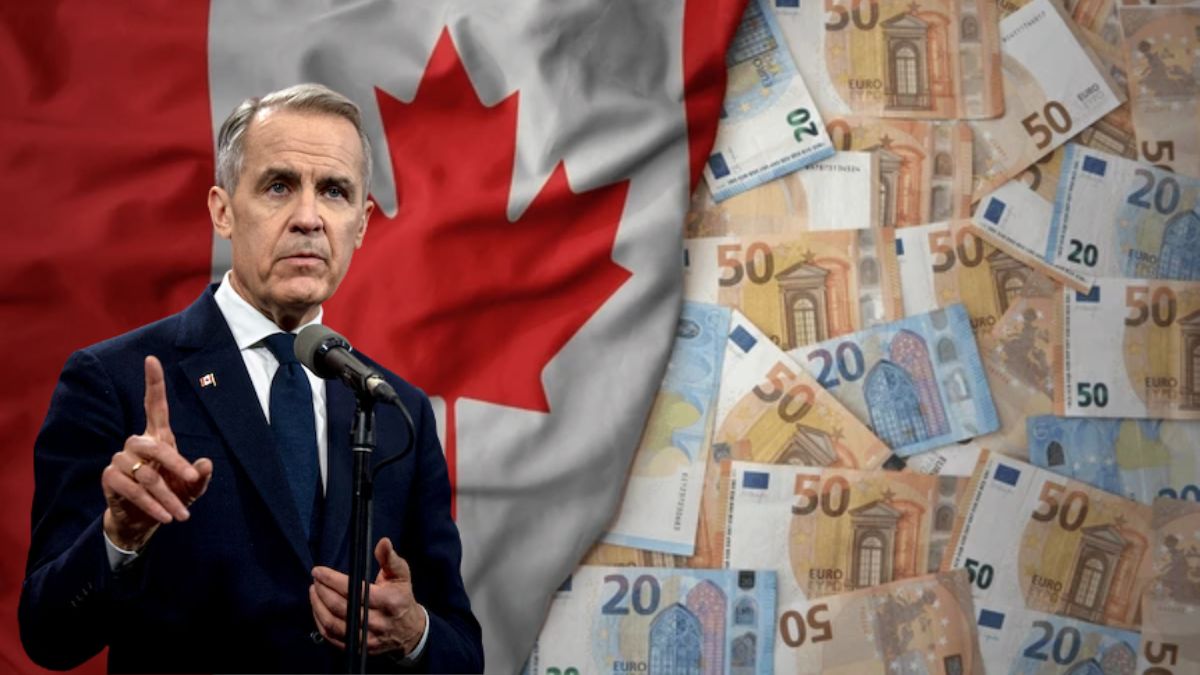If you’re earning minimum wage in Canada, 2025 brings promising news. Across the country, minimum wages are scheduled to rise—a response to mounting inflation, high rent prices, and increasing costs of daily essentials. These changes aim to better align wages with the cost of living and ensure more fairness for workers.
But what exactly is changing? Let’s take a detailed look at the provinces involved, the timing of wage increases, the purpose behind these changes, and how both workers and businesses should prepare.
Canada’s 2025 Minimum Wage Hikes
Several provinces and territories have already announced upcoming changes for 2025, with more expected to follow. Here’s a province-by-province look at confirmed dates and existing rates:
| Province/Territory | Current Minimum Wage | Effective Date | New Wage | % Increase |
|---|---|---|---|---|
| Yukon | \$17.59 | April 1, 2025 | TBD | TBD |
| Newfoundland and Labrador | \$15.60 | April 1, 2025 | TBD | TBD |
| Nova Scotia | \$15.20 | April 1, 2025 | TBD | TBD |
| New Brunswick | \$15.30 | April 1, 2025 | TBD | TBD |
| Prince Edward Island | \$16.00 | April 1, 2025 | TBD | TBD |
| British Columbia | \$17.40 | June 1, 2025 | TBD | TBD |
| Ontario | \$17.20 | October 1, 2025 | TBD | TBD |
| Manitoba | \$15.80 | October 1, 2025 | TBD | TBD |
| Saskatchewan | \$15.00 | October 1, 2025 | TBD | TBD |
While some provinces have not yet disclosed the exact wage increases, their commitment to raising minimum pay has already been confirmed.
Why Are Wages Going Up?
This isn’t just about a few extra dollars per hour. The 2025 minimum wage increases are driven by key economic and social goals:
- Combat Inflation: Rising consumer prices are eroding purchasing power. Wage increases aim to preserve real income.
- Close the Pay Gap: Minimum wage adjustments can reduce income inequality, especially for vulnerable workers.
- Improve Worker Retention: Higher wages can lead to lower employee turnover and greater job satisfaction.
- Economic Fairness: It sends a national message that fair pay matters.
Province-by-Province Breakdown
Here’s how each region is handling the upcoming wage changes:
Yukon
Currently offering Canada’s highest minimum wage at \$17.59/hour, Yukon adjusts its rate based on the Consumer Price Index (CPI), which ensures automatic, data-driven updates.
Newfoundland and Labrador
Their April 1, 2025 update is part of a plan to keep up with inflation, aiming for steady, gradual increases.
Nova Scotia
Minimum wage in Nova Scotia is shaped by recommendations from labor and business experts, with a confirmed April 1st hike.
New Brunswick
The province is focused on reducing interprovincial pay disparities by pushing ahead with April increases.
Prince Edward Island
Aims to ensure equity across sectors, with a continued commitment to reviewing wage fairness.
British Columbia
With a strong lead at \$17.40/hour, BC will increase wages again on June 1, reinforcing its leadership in wage policy.
Ontario
Ontario is scheduled for another October 1, 2025 increase, reaffirming its position in promoting economic security.
Manitoba & Saskatchewan
Both provinces will adjust wages in October 2025, following broad consultation with stakeholders and economic analysts.
How Minimum Wage Changes Affect Canadians
For Workers:
- Higher Incomes mean more flexibility to cover essential expenses like rent, food, and transit.
- Improved Morale as wage adjustments reflect acknowledgment of rising economic pressures.
- Increased Savings Potential for workers juggling part-time work, education, or dependents.
For Employers:
- Higher Payroll Costs, which require advance budget planning.
- Greater Retention and Recruitment as fair pay becomes a key attraction.
- Possible Price Adjustments, especially for small businesses, to offset wage increases.
What Factors Influence Wage Decisions?
Minimum wages are not chosen randomly. These are the main influences:
- Consumer Price Index (CPI): Reflects the real-time cost of living.
- Provincial Economic Trends: Wage growth aligns with employment rates and regional affordability.
- Consultation with Stakeholders: Includes input from business groups, labor unions, and economic policy experts.
Smart Tips for Workers and Businesses (Advice)
For Workers:
- Track Announcements from your province’s labor department.
- Plan Ahead with any wage increase—consider opening a savings or retirement account.
- Know Your Rights: Ensure your employer complies with the new wage law on time.
For Employers:
- Update Payroll Systems in advance of effective dates.
- Communicate Clearly with staff about upcoming wage adjustments.
- Review Operational Budgets to align pricing or staffing if needed.
Real-Life Examples: How This Impacts Everyday Canadians
- Maria in Ontario, who works two part-time jobs, may now comfortably cover rent and bills with a slightly higher income.
- John in British Columbia, a college student, finds it easier to save for tuition as his hourly rate rises.
- Emma in Nova Scotia, working nights at a retail store, will finally have the financial space to cut down extra shifts and focus on school.
These personal wins show that wage hikes, even when modest, can change lives.
FAQs
Q1: When will Ontario’s minimum wage go up in 2025?
A: Ontario’s next scheduled increase is October 1, 2025.
Q2: What is the current minimum wage in British Columbia?
A: As of now, it is \$17.40 per hour, with a new rate to be announced for June 1, 2025.
Q3: Who sets minimum wages in Canada?
A: Each province and territory sets its own wage, often based on CPI and economic consultations.
Q4: Where can I find updates for my province’s wage policy?
A: Visit the official Government of Canada Minimum Wage Database or your province’s labor department site.
Q5: Will every province raise wages in 2025?
A: Yes, although the timing and increase amounts will vary from one province to another.







